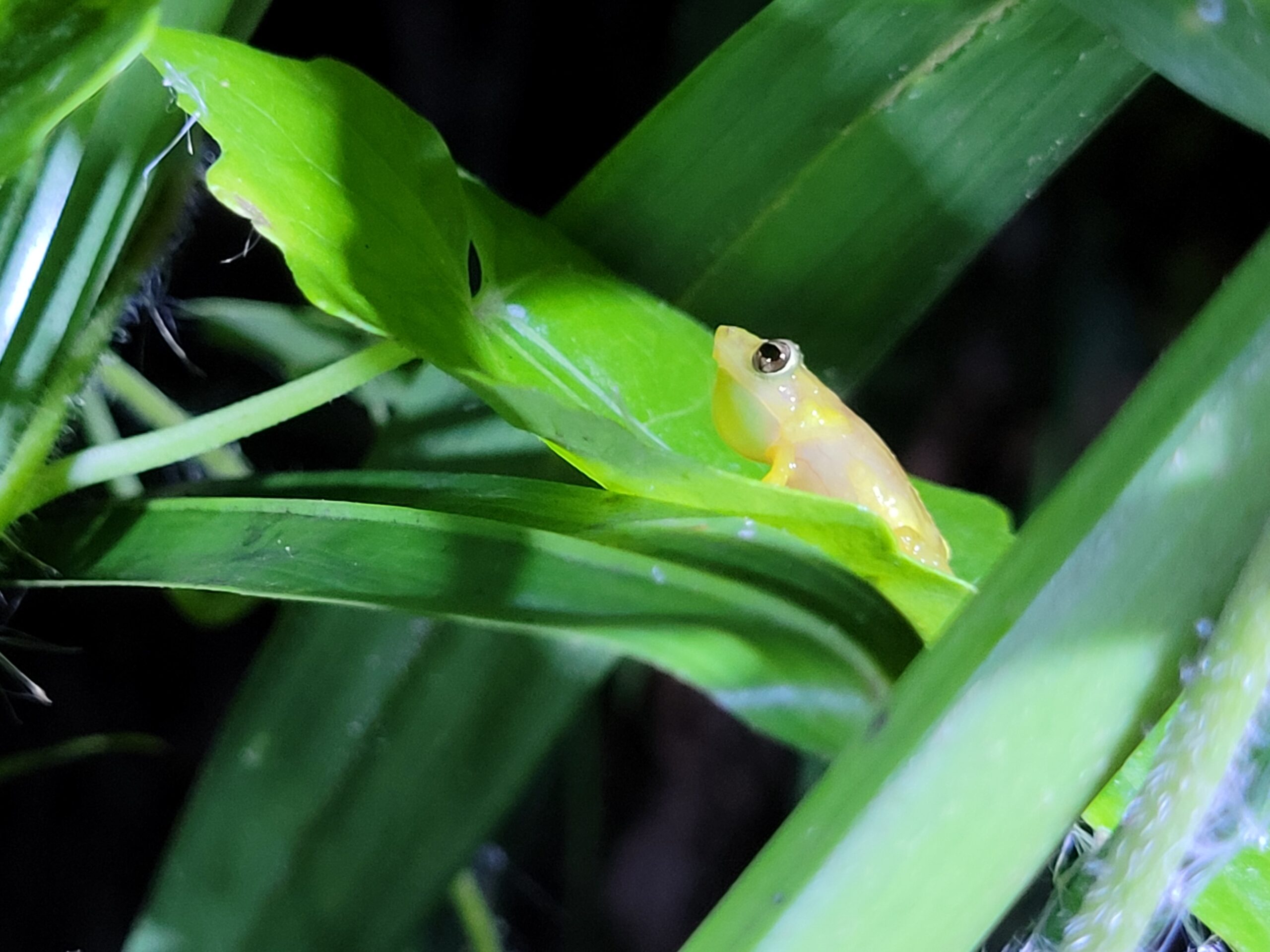SE CASC Glossary: What Does Climate Adaptation Mean?

The Southeast Climate Adaptation Science Center (SE CASC) is one of nine regional CASCs across the United States and Territories. This blog series defines terms and concepts that are commonly used at the SE CASC with expert interviews and resources for deeper dives.
Ad·ap·ta·tion
/adapˈtāSH(ə)n/
The word “adaptation” can have many different meanings. Generally, when something adapts, it is in a process of change to become better suited to its environment. Climate adaptation, then, is a process of change to become better suited for future climates.
Let’s look at an example of climate adaptation research by traveling to the Caribbean. One of the most distinct characteristics of Puerto Rico is the nightly chorus of the coquí frog (listen here). Coquí frogs are part of Puerto Rican culture and are important indicator species for future changes.
Puerto Rico is projected to experience more drought in the future, both extreme drought and for longer periods of time (see Chapter 23 of the NCA5 report). Managers know from previous droughts that they can lead to dramatic declines in coquí populations, so a future climate with more droughts would put the coquí at risk.

Conservationists and managers alike want to act now to position the species to adapt to that future. And, SE CASC researchers have helped managers find priority conservation areas that will be best for coquí frogs in those future climates (see this blog).
Climate adaptation research can have many layers of complexity and require different disciplines, professionals, researchers, and practitioners to work together. We call this process of working together “coproduction.” This is why SE CASC created the Global Change Research Fellows program to give graduate students experience in how to work within interdisciplinary teams.
Listen:
Learn more from SE CASC Research Ecologist, Adam Terando about climate adaptation work.
Watch:
- Climate Adaptation Planning: Guidance for Emergency Managers (FEMA)
- Adapting to a Changing Climate (UNFCCC Adaptation Committee)
Tools:
- Department of Defense Climate Resilience Portal
- U.S. Climate Resilience Toolkit
- EPA’s Tools for Climate Change Adaptation
Literature:
- vonHedemann, N., Breidenbach, T., Carney, C. P., Carr Childers, L., David-Chavez, D. M., Havrilla, C. A., … & Stevens-Rumann, C. S. (2023). Climate adaptation research priorities and funding: a review of US federal departments’ climate action plans. Climate Policy, 23(10), 1288-1301.
- Massetti, E., & Mendelsohn, R. (2018). Measuring climate adaptation: Methods and evidence. Review of Environmental Economics and Policy.
- Bierbaum, R., Smith, J. B., Lee, A., Blair, M., Carter, L., Chapin, F. S., … & Verduzco, L. (2013). A comprehensive review of climate adaptation in the United States: more than before, but less than needed. Mitigation and adaptation strategies for global change, 18, 361-406.
- Thompson, L.M., Staudinger, M.D., and Carter, S.L., 2015, “Summarizing components of U.S. Department of the Interior vulnerability assessments to focus climate adaptation planning: U.S. Geological Survey,” Open-File Report 2015–1110, 14 p.
- Categories:
